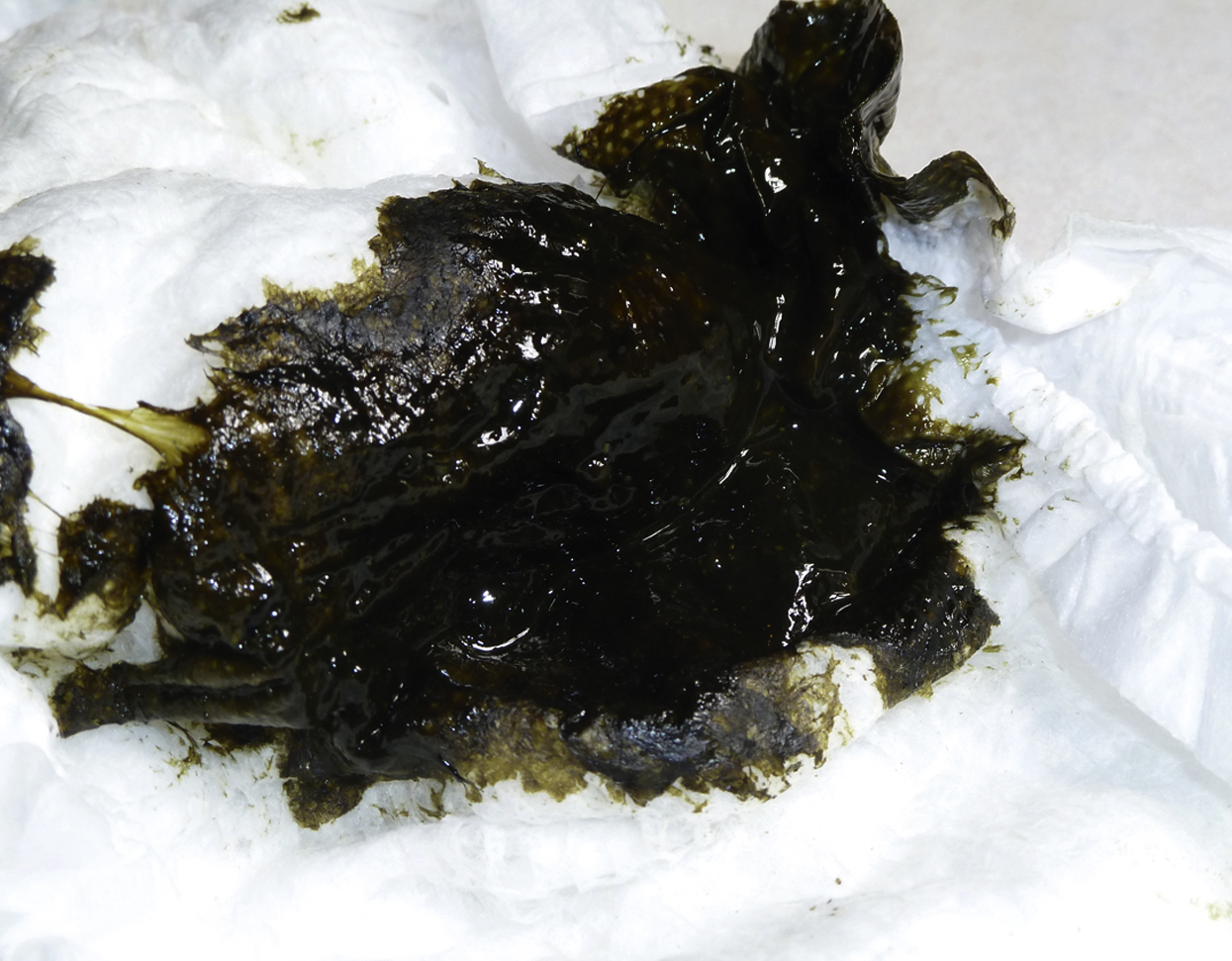meconium /mikō″nē·əm/ [Gk, mekon, poppy] , a material that collects in the intestines of a fetus and forms the first stools of a newborn. It is thick and sticky, usually greenish to black, and composed of secretions of the intestinal glands, some amniotic fluid, and intrauterine debris, such as bile pigments, fatty acids, epithelial cells, mucus, lanugo, and blood. With ingestion of breast milk or formula and proper functioning of the GI tract, the color, consistency, and frequency of the stools change by the third or fourth day after the initiation of feedings. The presence of meconium in the amniotic fluid during labor may indicate fetal distress and may lead to a lack of oxygen and developmental delays.

